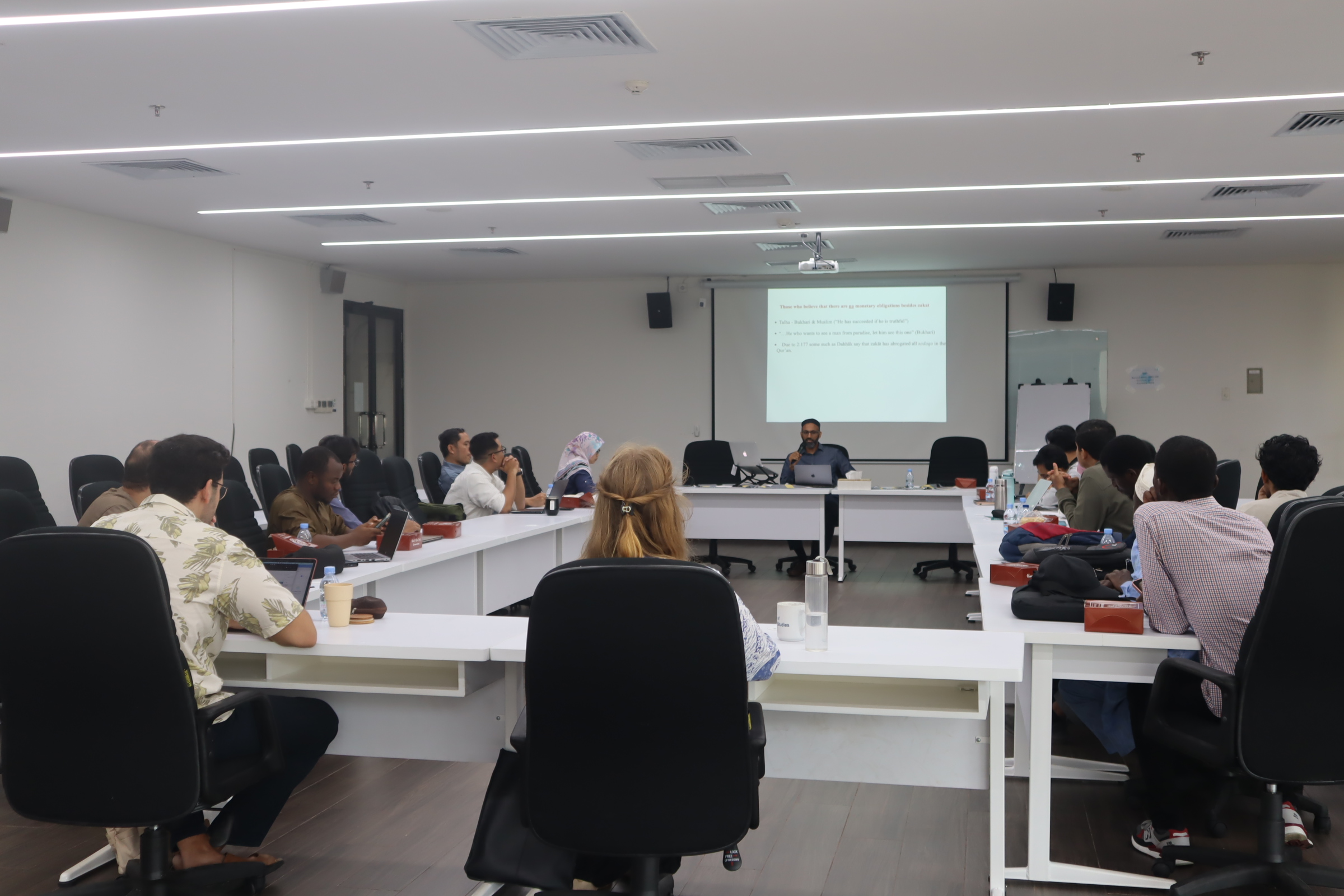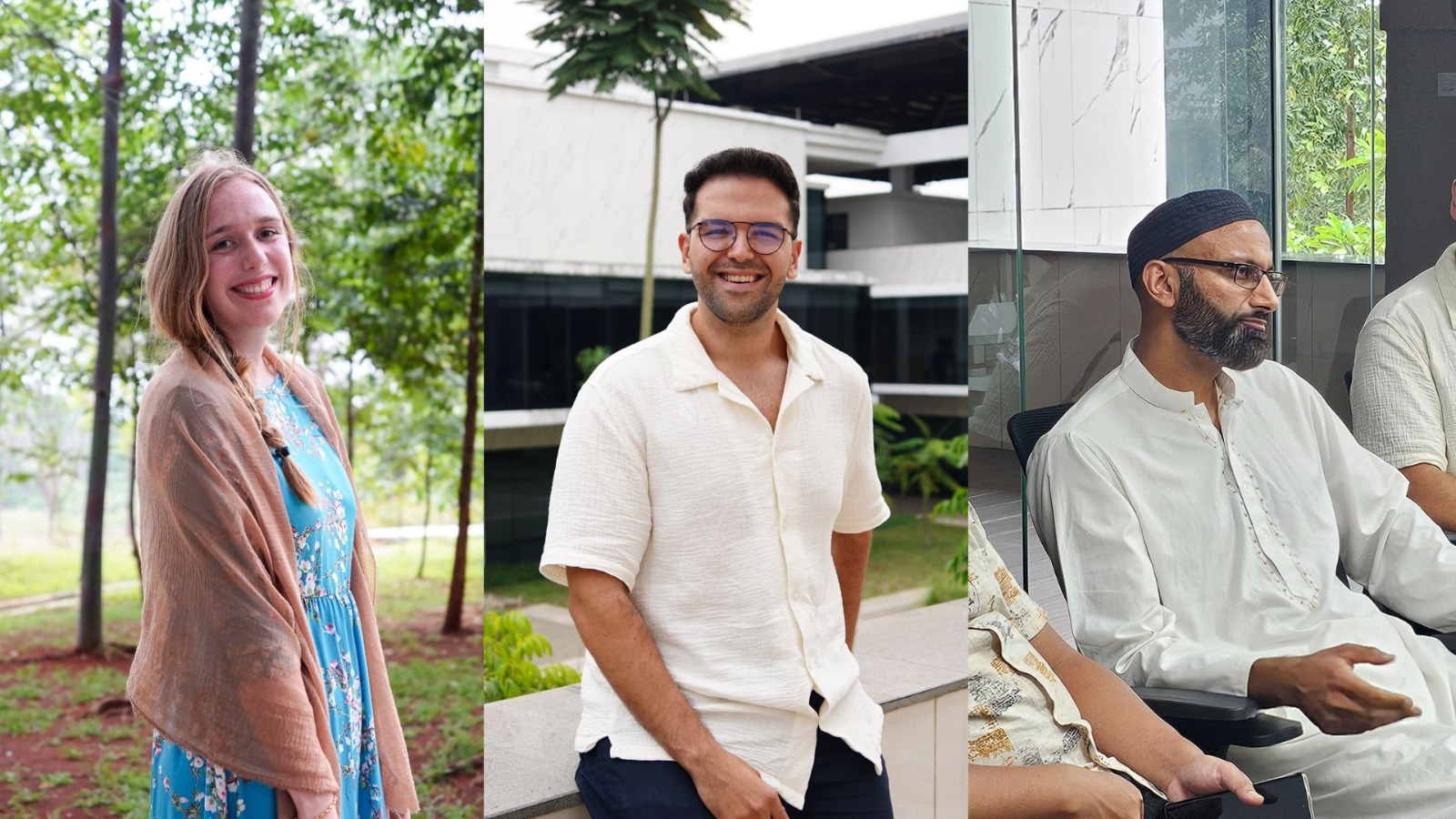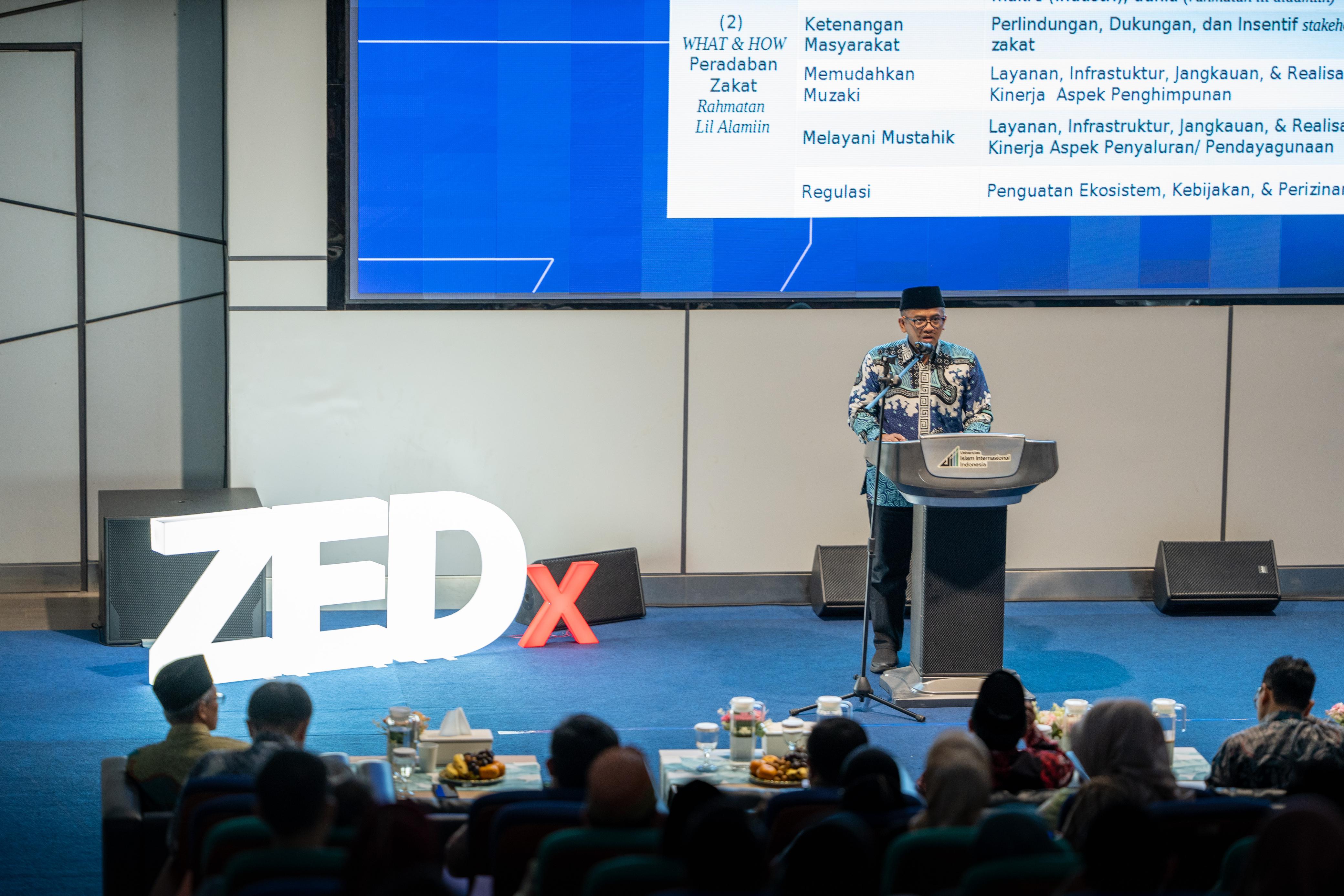Dr. M. Imran Khan Explores 'Islamic Philanthropy Beyond Zakāt' at UIII
December 31, 2024Contributor: Supriyono | Editor: Dadi Darmadi | Photo: Dzakiyyah Fauziyah Rif'at
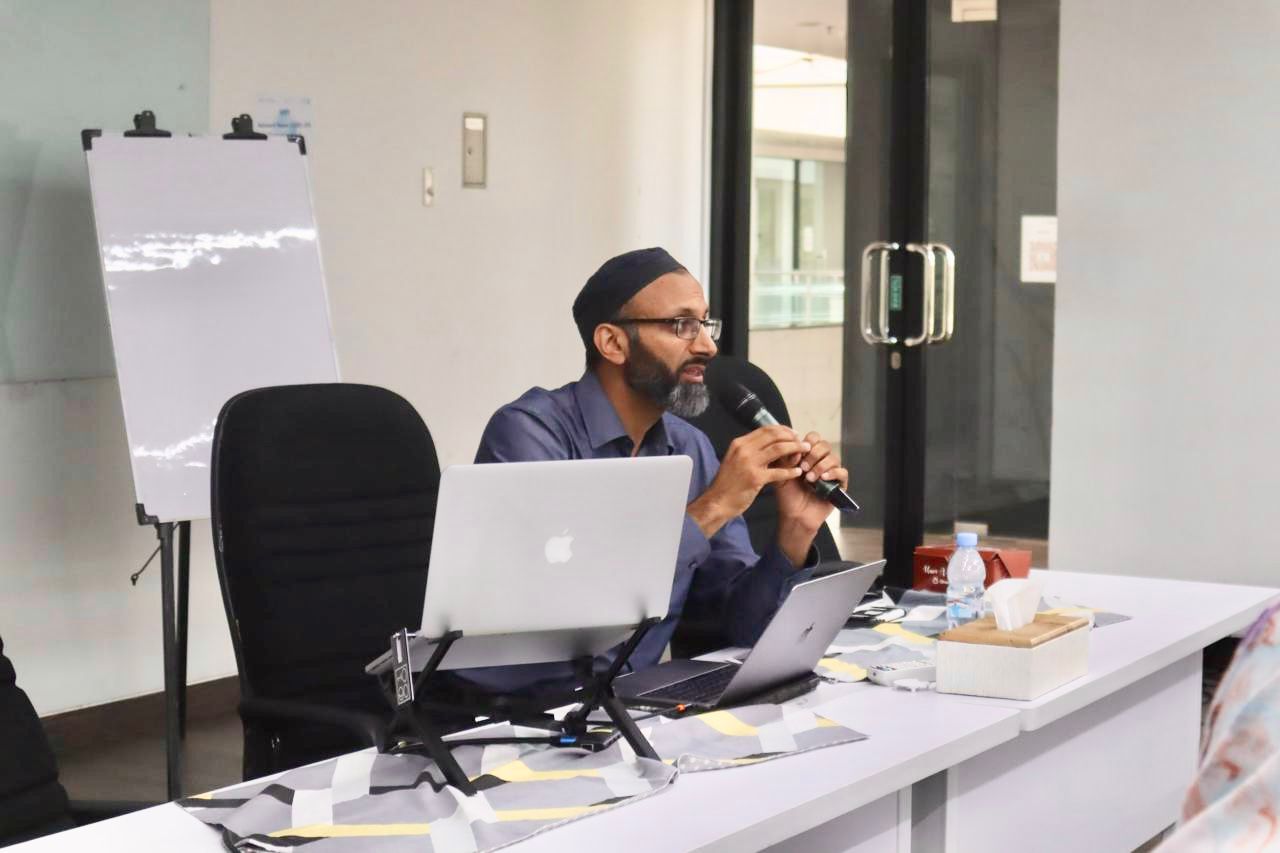
The UIII Faculty of Islamic Studies hosted an insightful lecture by M. Imran Khan, PhD, a fellow at the Center for Islam and Global Challenges (IGC) at UIII. The lecture, titled "Islamic Philanthropy Beyond Zakāt: A Critique of Two Contradictory Traditions," delved into the theological and philosophical debates surrounding the obligations of monetary charity in Islam beyond the prescribed zakat (mandatory annual almsgiving).
Dr. M. Imran Khan received his PhD in Theology and Religious Studies from the University of Cambridge, UK. Aside of his position as a research fellow at IGC Center, he also serves as a Postdoctoral Researcher at the Trinity College Dublin, Ireland, working on researching the Judaeo-Arabic Cairo Genizah fragments.
Dr. Khan began by presenting two dominant perspectives on the subject. The first asserts that zakāt is the only obligatory form of monetary charity in Islam, citing evidence from key hadiths, including the narration of Talha in Sahih Bukhari and Sahih Muslim. This position argues that any further charitable contributions are entirely voluntary.
Conversely, the second perspective contends that there are indeed other obligatory forms of monetary charity beyond zakāt. Scholars like Ali ibn Abi Talib, Sa’īd ibn Hazm, and Ibn Umar have emphasized the Quranic command to 'feed the hungry' and assist those in need, interpreting verses such as Surah Al-Baqara (2:177) as evidence of additional obligations.
Dr. Khan critically examined two seemingly contradictory hadiths: one stating, 'There is no obligation in wealth besides zakāt' (Ibn Māja) and the other declaring, 'There is an obligation in wealth besides zakāt' (Tirmidhī). He highlighted scholarly disagreements over the authenticity and interpretation of these narrations, referencing figures such as Imam Nawawi, Hafiz Abu Zur’a, and Yusuf Al-Qardhawi.
Philosophically, Dr. Khan addressed the ethical implications of wealth distribution in modern society, referencing thinkers like Peter Singer and David Miller. He discussed the 'diffusion of responsibility effect,' which diminishes individual altruism in collective settings, and argued for a renewed sense of global responsibility among Muslims.
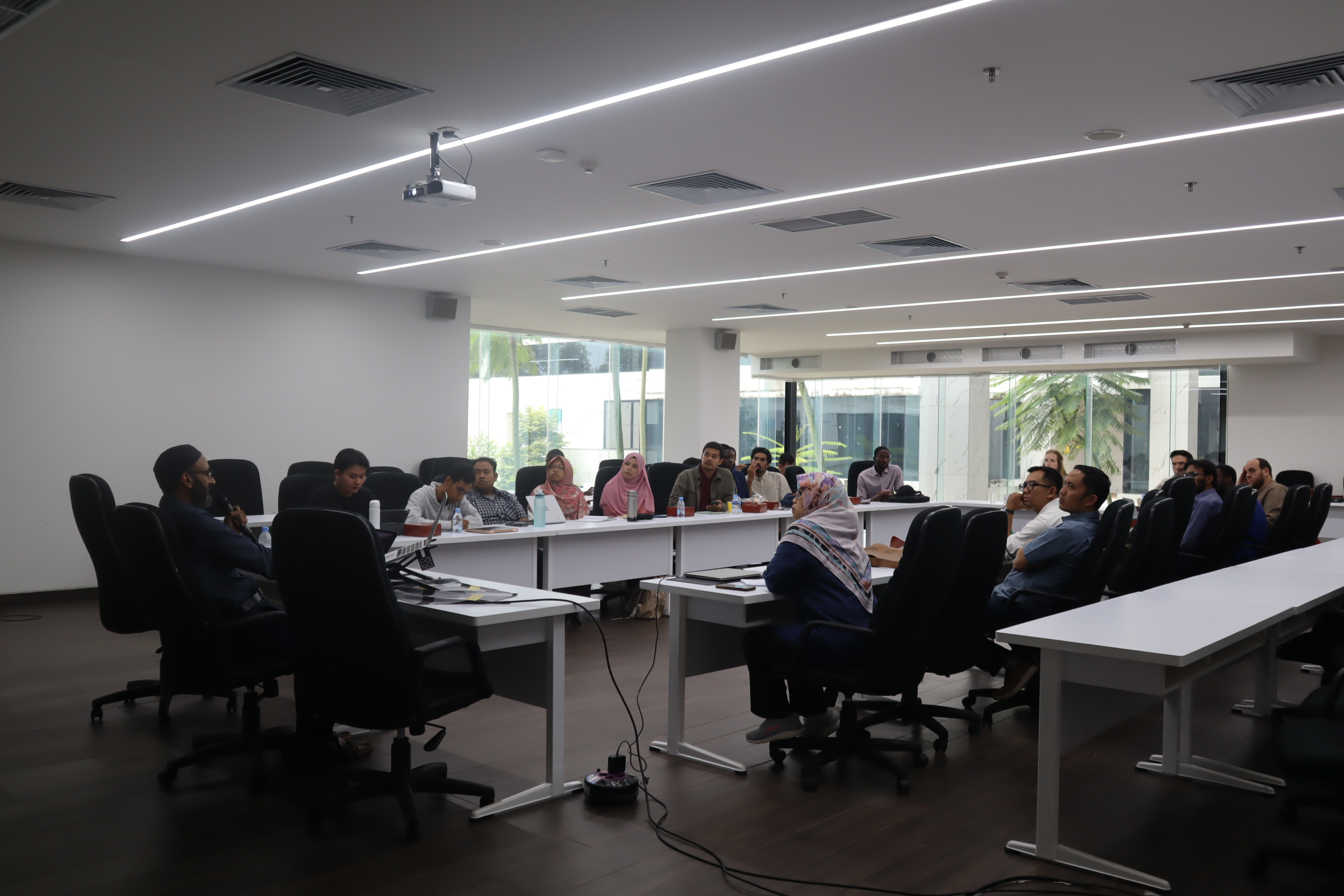
In his conclusion, Dr. Khan emphasized the pressing need to address wealth concentration, improve governance, and revive the spirit of Ummatic compassion. He called for further academic inquiry into defining the thresholds of obligatory giving and exploring sustainable wealth management models.
The lecture provides a critical reflection on practical ways to address economic disparities within and beyond Muslim communities. Dr. Khan’s analysis provided a thought-provoking foundation for future discussions on Islamic philanthropy in an increasingly interconnected world.
The Faculty of Islamic Studies at UIII continues to foster critical discourse through such events, reinforcing its commitment to addressing contemporary global challenges through Islamic scholarship.
- UIII Extends Application Deadline for 2025 International Admissions
- What Does Eid al-Fitr Mean for the UIII Academic Community?
- UIII PhD Scholar Ararat Kostanian Delivers Lecture at Armenia's Yerevan State University
- Swedish Ambassador to Indonesia Applauds UIII’s Vision, Explores Future Collaboration
- Depok Mayor Supports UIII as the Green Lung of Depok and Beyond
- Depok Mayor Pledges to Build Performance Hall at UIII
- New Parking Facility Launched, Part of UIII-Sentra Medika Hospital Partnership
- Yogyakarta’s UII Won 1st FisFastFest’s Clash of Campuses
- Vice Minister of Religious Affairs Praises UIII as a Global Hub for Islamic Education
- Hurray!! UIII Wins Football Championship
